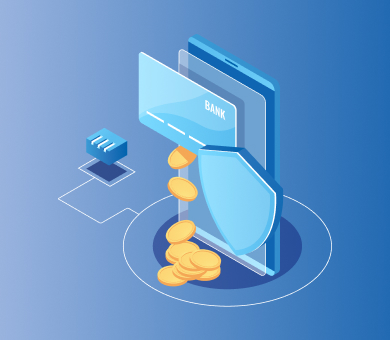In recent years, the financial services industry has undergone a significant transformation driven by technological advancements and changing consumer expectations.
One of the key drivers of this transformation is the emergence of Open Banking and the API (Application Programming Interface) economy.
In this article, we’ll have a look at how Open Banking and APIs are making big changes in economic affairs by working together with fintech companies.
What Are Open Banking APIs
Open Banking implies sharing banks’ data with outside developers so they can create new banking software solutions and services. APIs are like the connectors that make this sharing possible, helping different systems and platforms work together.
Key Components of Open Banking and API Economy
Open Banking and the API economy involve many parts working together to bring new ideas, competition, and teamwork to the world. They are:
Regulatory Frameworks
Rules and guidelines set by governments play a primary role in how Open Banking works. These rules require banks to share their information and services with outside developers while keeping people’s personal info safe.
API Standards and Specifications
APIs are like the building blocks of Open Banking. There are various types of API standards and rules, like RESTful APIs, OAuth 2.0, and OpenID Connect. They make sure everything works together well, stays secure, and can grow easily.
Security Measures and Protocols
Using strong safety measures and protocols helps keep important financial details safe and lowers the risk of unauthorized access, fraud, or data leaks.
Therefore, Open Banking often employs complex encryption, authentication, and secure ways of sharing information through APIs to make sure that everything is private, correct, and only seen by the right people.
Data Governance Principles
Setting up clear data governance principles is a must for sharing financial details responsibly and following privacy rules.
These principles include being transparent, managing consent, minimizing the amount of records collected, ensuring data accuracy, and being accountable for how information is used.
Challenges and Considerations of Bank API Integration
Open Banking comes with some issues that need to be addressed to make the most of its potential.
Data Privacy and Security Concerns
The first immense problem is ensuring customer records stay private and safe. Financial institutions must have strong measures in place to keep sensitive information safe from unauthorized access, breaches, and misuse.
Compliance with Regulatory Requirements
Meeting regulatory requirements is another issue. First of all, it’s because of the differences in laws between various places.
The second reason is that adherence to laws needs a lot of resources and know-how. Lastly, laws like GDPR in Europe and PSD2 are complex and demand strict following data protection, security, and managing consent standards.
Technical Complexities
The third type of problem is tightly connected to the technical side of the programming interfaces.
This includes creating APIs that work the same way for everyone, making sure they work with different systems and devices, managing different versions of them, and dealing with how well they handle multiple users.
Interoperability Issues
Making different parts of Open Banking work together has always been an obstacle. Differences in how protocols are set up, how data is formatted, and how users are verified make it hard for everything to connect correctly and share information.
To solve this, it’s crucial for everyone involved to agree on standard rules and use frameworks that help APIs work together.
People’s Mistrust
Finally, financial institutions face significant hurdles in getting people to trust and use Open Banking services.
People worry about their info being kept safe and not misused by others. To overcome these worries, banks must be open about handling records, have robust security measures, and communicate clearly with their clients.
Use Cases and Success Stories of Open Banking APIs
Financial data sharing and the API economy have changed the way we do finance, bringing in lots of new and creative ideas. Here are some clear examples of how these ideas have shaken up the industry:
MoneyWise
The MoneyWise finance management app uses API Banking to bring together all clients’ transactions, credit card, and investment info in one place. It helps people track their spending, set budgets, and reach money goals by giving them clear insights into their situation.
PayDirect
A fintech company called PayDirect uses API banking to let people start payments straight from their bank account. With their app, customers can quickly pay for things online or send money without needing a credit card or doing a regular bank transfer.
FinPoint
FinPort is an account aggregation platform that gathers asset-related information using bank API integration. It combines data from customers’ bank accounts, loans, and investments so they can see everything in one place.
CreditSense
CreditSense is a finance company that uses Open Banking APIs to come up with new ways to lend money.
They look at your operations history and how you handle money to decide if you’re suitable for a loan, all in real time. This means they can approve loans quickly and offer interest rates that fit your financial situation.
Future Trends and Opportunities
The changes happening in Open Banking and the API economy are set to shape the future of money handling. They bring many new trends and opportunities for banks to grow and be more creative.
Blockchain and Distributed Ledger Technology (DLT)
Blockchain, the technology behind cryptocurrencies like Bitcoin, will continue to change the way we do money management. It offers secure and transparent ways to make transactions, manage contracts, and even create new kinds of financial products.
Open Finance and Expanded Data Access
Open Banking will expand beyond just bank accounts to include other financial products like insurance and investments. In other words, people will be able to see all their financial data in one place and make better money decisions.
Regulatory Inventions
Governments around the world will continue to update rules and regulations to encourage inventions while protecting consumers. This will make it easier for banks and fintech companies to collaborate across borders, creating more opportunities for everyone.
Hyper-Personalization
Banks will use technology to understand customers better and offer products and services tailored to their needs and preferences. This could mean getting personalized advice, offers, and recommendations that help them manage their money more wisely.
Conclusion
Open Banking and the API economy are changing how the financial sector works, encouraging new ideas, competition, and teamwork.
By accepting these changes and dealing with the problems that come with them, banks can find new ways to offer better services and make customers happier in a world that’s becoming more and more digital.
Ready to explore Open Banking and APIs for your business? Contact SCAND now to discuss your options and drive innovation.
The post Open Banking and API Economy: Transforming Financial Services with Fintech Collaboration appeared first on SCAND.








